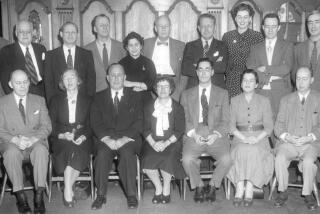Minds over bodies
DO not judge this book by its cover. Or its title. “Do Me: Tales of Sex & Love From Tin House” is a misnomer. The cover photo -- a head-on view of the wet pages of a book, swollen open like female genitalia -- is salacious but misleading. These are masterful stories and essays, examples of Tin House literary magazine’s excellent reputation, and each is deeper than the title or the cover implies. These are not “dirty stories,” even when the sex scenes are twisted or violent.
“It was Jack. His face was serious. He told me to stand up. I stood up. He told me to put my shoes on. I put my shoes on. He told me to stand in front of the mirror and hold on to the sink. And I did. I could see him in the mirror. His chest pressed against my back and his mouth came to my ear. He whispered into it and his hands crept around my back and inside my bra, a lavender push-up bra that caused my breasts to spill from it.”
Excerpted, it reads like pornography. But within Martha McPhee’s wonderful, disturbing story, “The Anthropology of Sex,” what is primary is not that Isabelle experiences an adulterous quasi-rape and enjoys it but that she tells her sister every detail. It is the relationship between the sisters that matters. Jack and his middle-aged wife serve only to fuel the sisters’ obsession with each other.
Good sex writing, like good sex, is in the particulars; this partner at this time, where, why. A reader’s interest is in those details. If a writer depicts two people making love and just describes technique and body parts, it’s nothing more than a plumbing manual. “Do Me” contains some graphic sex, but the groping and thrusting are used to divulge secrets otherwise unknown. The characters fantasize, they need, they hope and pray, but what matters are the effects of their desire.
“Suddenly, I look up and lock eyes with another raccoon. The first I’ve seen! And it’s a boy! Ranger Rick is dark and pretty in a tight striped top and black shorts, and he, he has a tail! A big long bushy one. I swoon.” Sadly, Trixie, a raccoon “furrie” with a missing tail, is rebuffed by her male counterpart, and, surprisingly, we feel for her. Elissa Schappell, in “Sex and the Single Squirrel,” takes an easily mocked fetish and, while letting us laugh out loud, makes Trixie sympathetic. It is a story about the awkwardness of being ourselves and the fear of asking for what we want.
Steven Millhauser explores why we need to make love in the dark. Denis Johnson’s and Victor LaValle’s characters have to pay for intimacy. And the title of Michael Lowenthal’s piece about blind gay men, “You Don’t See the Other Person Looking Back,” says it all.
These stories and essays suggest that during this intimate act, exactly when we are at our most vulnerable and exposed, some kind of anonymity is necessary for us to let go. In Lucia Perillo’s essay, she tells us: “All my life, in health and out, I have hunted for communion -- drugs, meditation, mountain climbing, men, a variety of religions,” and she admits that none of it has lasted. In Miranda July’s very short story “The Moves,” we ache for the young woman given a unique and inappropriate gift by her dying father, and we understand her gratefulness and why she longs to pass the gift on to her own daughter one day. Each of these works is about the search for attachment, however unusual our predilections and peccadilloes might be -- as in this example from “Make Believe,” by Nicholas Montemarano:
“ ‘Listen,’ she said. ‘I only want to feel good. Isn’t that what we all want -- to feel good, and to make others feel good?’
“I put my hand around her wrist, the one with the scar. ‘I think I pulled out some of your hair.’
“ ‘It’ll grow back.’ ”
“Only connect!” Forster’s famous dictum from “Howards End,” might have been a better -- if less marketable -- title for this collection. And a better cover photo might have been an average sort of person all by herself or himself on the side of an endless road. “Do Me” is not a book we want to take alone into bed. This is a book we want to place on the nightstand as we turn out the lamp, roll over and kiss our longtime companion good night.
More to Read
Sign up for our Book Club newsletter
Get the latest news, events and more from the Los Angeles Times Book Club, and help us get L.A. reading and talking.
You may occasionally receive promotional content from the Los Angeles Times.






